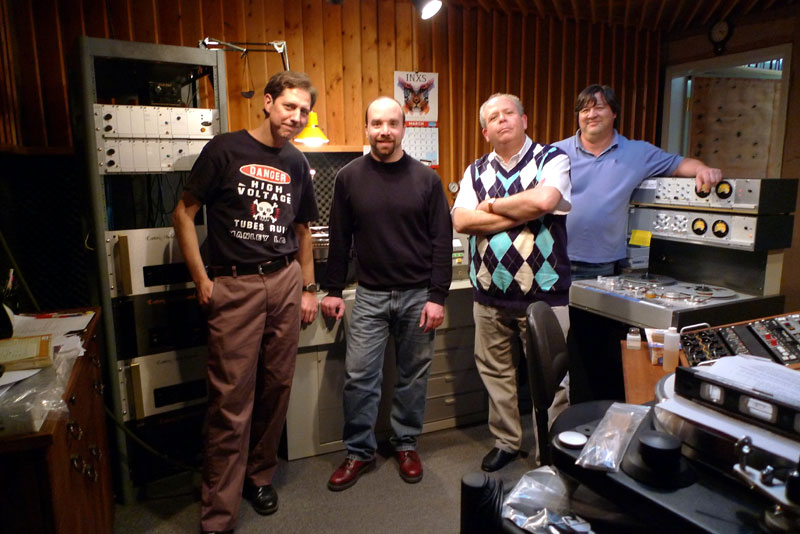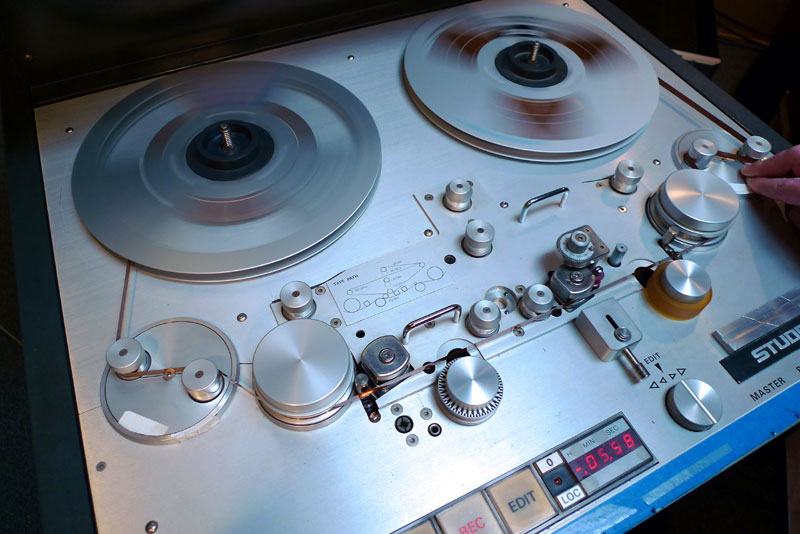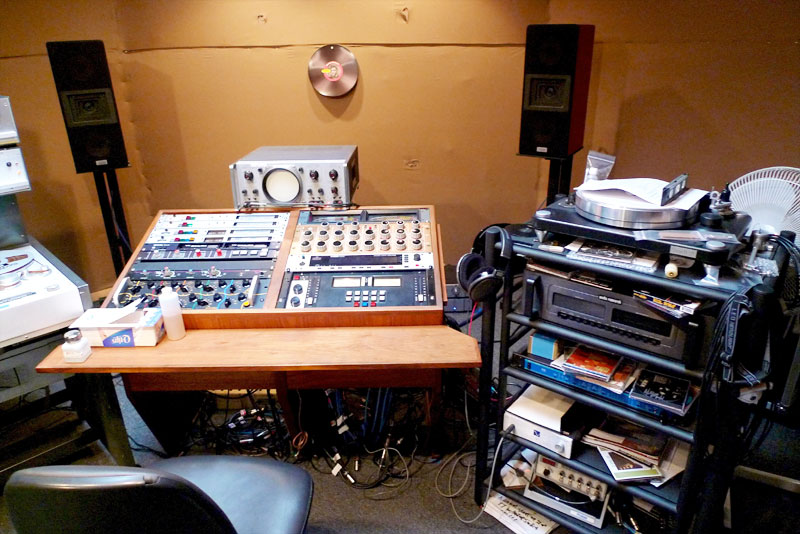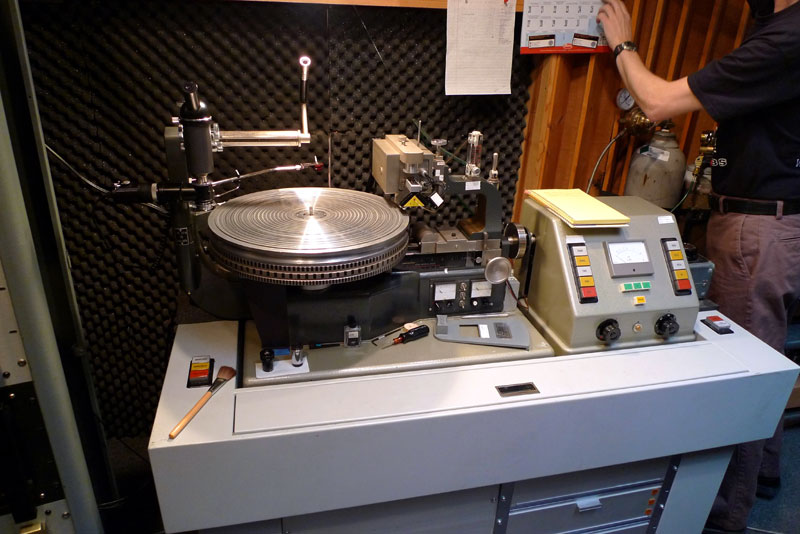MoFi Flying High
n this golden age of audiophile vinyl reissues, it’s easy to forget that Mobile Fidelity established the model for all such releases over 30 years ago. In 1977, Brad Miller started Mobile Fidelity Sound Lab, although he had used the Mobile Fidelity name twenty years before to record train-sounds and sound-effects albums. In the late '70s, however, the company combined Stan Ricker’s half-speed-mastering magic with real music and became a sensation with the release of Pink Floyd’s Dark Side of the Moon. Beatles, Rolling Stones and Frank Sinatra boxed sets followed, and so did gold CDs in the digital era, all of which defined Mobile Fidelity as a model for audiophile music labels. The big difference in those early days was distribution. There was no Acoustic Sounds, Music Direct or Elusive Disc. There were no personal computers, let alone the Internet. You usually drove some good distance to find a small specialty record shop that carried audiophile reissues, and the selection was hit or miss.
The MoFi gang (left to right): Shawn Britton, Rob LoVerde, Michael Grantham and John Wood. Mobile Fidelity rode the wave of changes in music distribution that took place with the birth of the CD and the computer, seeming to swim above the undercurrent. But in 1999 its main distributor went out of business and Mobile Fidelity followed. Its operations in Sebastopol, California, were shuttered while bankruptcy proceedings took their course. But in 2001, Jim Davis of Music Direct purchased the company’s assets and revived the business. Today, while Mobile Fidelity’s operations run out of Chicago, where Music Direct is headquartered, its mastering facilities remain in Sebastopol and are run by a team of veteran employees. Michael Grantham, John Wood and Shawn Britton each started with the label back in the 1980s. Grantham is managing director and in charge of business affairs, John Wood is executive vice president, and Britton is senior mastering engineer. The newest member of the group is mastering engineer Rob LoVerde.
Where the magic begins: the custom Studer half-speed tape deck. I recently visited the Sebastopol mastering facility and had the pleasure of spending a few enjoyable hours with the Mobile Fidelity crew. Every square inch of the place is stuffed to the gills with equipment, boxes of LPs, and a safe full of master tapes. This being California, real estate is at a premium and nobody gets rich making records, so every square inch is utilized. The heart of the place is the mastering room, filled with Tim de Paravicini-sourced and -tuned EAR mastering electronics and Studer tape machines. Lipinski monitor speakers -- L-707s, I believe -- provide all the benefit of a true professional monitor and let the Mobile Fidelity crew hear every detail in the mix. I sat at the console and listened to what the engineers were hearing when they were doing their work. This is nearfield listening, where nothing that is going on in the mix is missed. Mastering studios in California cover the range of experience. A recent visit to Paul Stubblebine’s studio in San Francisco showed off his Focal Utopias driven by VTL Siegfried monoblocks -- the audiophile end of mastering studios. Before it ceased mastering work in 2008, The Record Plant in Sausalito, California, featured a similar approach, while the Hoffman/Gray mastering facility in Southern California hewed to the monitor-speaker approach, much like Mobile Fidelity.
The MoFi mastering suite. Of all of these, Mobile Fidelity feels the most like a place where the work never stops. Evidence of various projects in process was all around and had me salivating with anticipation. Unlike many of the pristinely groomed mastering facilities I’ve visited, this one has a homier atmosphere -- with stickers and rock calendars about that fit right in with Britton’s fun sense of dress (a skull-and-crossbones Manley t-shirt on the day of my visit). And what a string of incredible releases have poured out of Sebastopol over the last few years: many stunning Sinatra and Elvis Costello recordings, along with stuff from The Band, Stevie Ray Vaughan and a recently released and stunning Carole King SACD that's soon to come to vinyl. One of the secrets has to be the absolute love of the work that exudes from mastering engineers Shawn Britton and Rob LoVerde. LoVerde is the new kid on the block. He hung around pestering Britton until he was hired and now works every day at his dream job. While I was visiting, I listened to works-in-progress: Stevie Ray Vaughan's Couldn’t Stand The Weather, Keb Mo's self-titled debut, The Concert Sinatra and The Band’s Cahoots.
The Neumann VMS-70 lathe. There’s very little that compares to sitting in the mastering lab, seeing the master-tape boxes, and hearing the first-generation tapes used for the creation of Mobile Fidelity’s LPs, CDs and SACDs. I inquired about the new Silver Label releases coming out on standard-weight vinyl at lower prices to see if I could discover where the corners were being cut. What I discovered was that the economy was not achieved at the expense of first-class mastering -- the same mastering facility is used. This is a facility that can run 24/7, and this is achieved by bringing in outside mastering engineers, like Paul Stubblebine, for contract work on specified projects. Stubblebine, one of the premier mastering engineers in the world, did the work on the recent Love Swings by Bobby Darin (look for the "PS" etched in the dead wax), so these Silver Label products get first-class treatment. I tried to pry out what projects were being negotiated
for future release, but I had no more success than I did with the head office back in
Chicago. I’m not complaining. I get to have some presents under the tree over the
next few months as Mobile Fidelity announces the new contracts it has signed and the
Sebastopol crew shines up some more jewels. |




